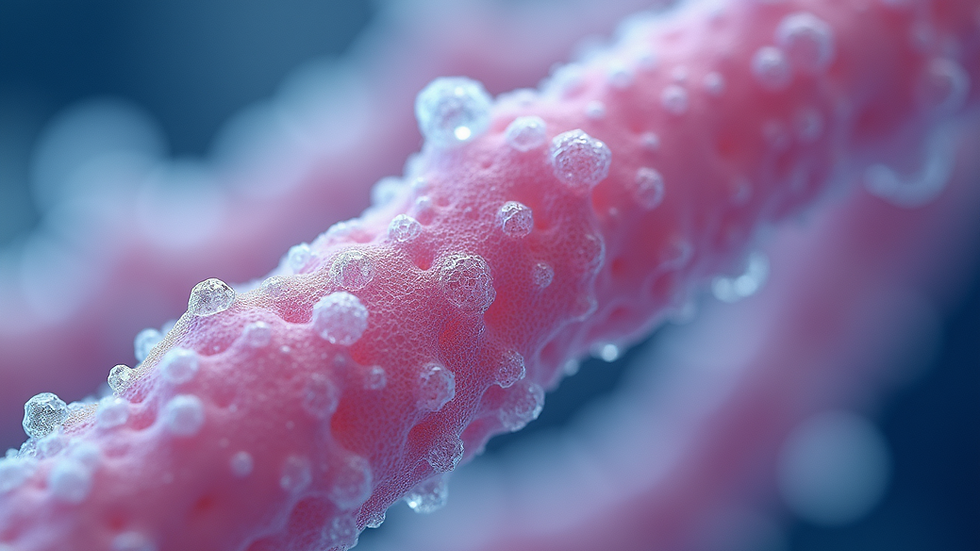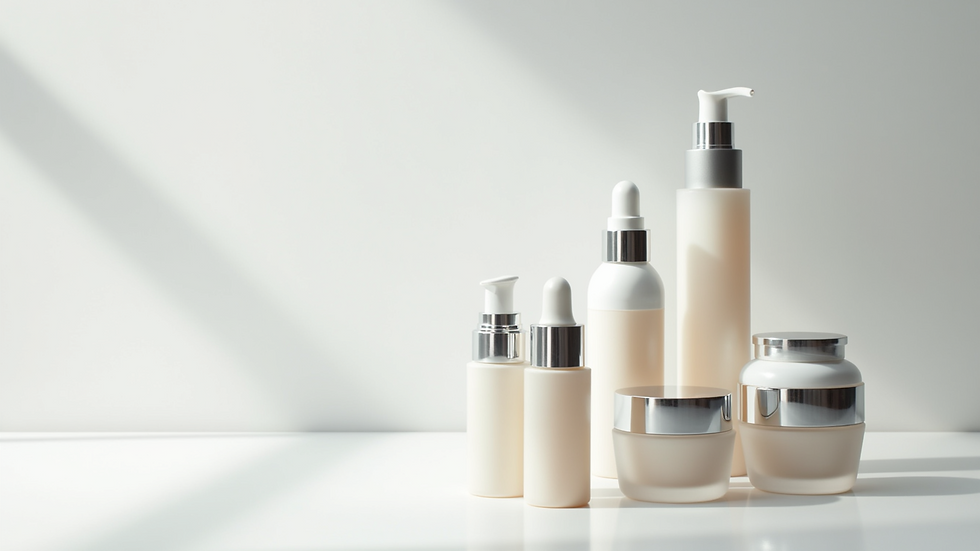Ways to Naturally Promote Collagen Production
- Glow Face Aesthetic

- 5 days ago
- 4 min read
As we age, our skin undergoes many changes. One of the most noticeable is the loss of firmness and elasticity, often leading to saggy skin on the face and neck. This is largely due to a decline in collagen, a vital protein that keeps our skin smooth and youthful. Understanding how to naturally support your body’s collagen production can make a significant difference in maintaining skin texture and reducing visible signs of ageing.
Understanding Collagen and Its Role in Skin Health
Collagen is the most abundant protein in the human body, making up about 30% of the total protein content. It acts as a scaffold that provides structure and strength to the skin, tendons, ligaments, and bones. In the skin, collagen fibres form a dense network that supports the outer layer, keeping it firm and resilient.
With age, collagen production slows down, and existing collagen fibres break down faster than they are replaced. This leads to thinner skin, wrinkles, and sagging, especially around the face and neck. Environmental factors such as sun exposure, smoking, and poor diet can accelerate this process.
To combat these effects, it is essential to adopt habits and treatments that encourage your body to maintain or increase collagen levels naturally.

Collagen Treatment: Lifestyle Changes to Support Skin Structure
Lifestyle choices play a crucial role in collagen health. Here are some practical steps to help your skin maintain its collagen content:
Balanced Diet Rich in Collagen-Boosting Nutrients
Consuming foods high in vitamin C, zinc, and amino acids supports collagen synthesis. Citrus fruits, berries, leafy greens, nuts, and lean proteins are excellent choices. Bone broth is also a popular source of collagen peptides.
Adequate Hydration
Water keeps skin hydrated and supports cellular functions, including collagen production. Aim for at least 1.5 to 2 litres of water daily.
Regular Exercise
Physical activity improves blood circulation, delivering oxygen and nutrients to skin cells, which promotes collagen formation.
Sun Protection
Ultraviolet (UV) rays break down collagen fibres. Use broad-spectrum sunscreen daily and wear protective clothing to reduce sun damage.
Avoid Smoking and Excessive Alcohol
Both smoking and heavy alcohol consumption impair collagen production and accelerate skin ageing.
Incorporating these habits can create a strong foundation for healthier, firmer skin.

Is it possible to boost collagen production?
The good news is yes, it is possible to stimulate your body’s collagen production naturally and through certain treatments. Collagen synthesis is a dynamic process influenced by internal and external factors. While ageing is inevitable, you can slow down collagen loss and even encourage new collagen formation.
Certain skincare ingredients have been scientifically proven to support collagen production:
Retinoids (Vitamin A derivatives)
Retinoids increase collagen synthesis by promoting skin cell turnover and stimulating fibroblasts, the cells responsible for collagen production.
Vitamin C
This antioxidant is essential for collagen formation and protects skin from oxidative stress.
Peptides
Small protein fragments that signal skin cells to produce more collagen.
Hyaluronic Acid
While it does not directly increase collagen, it hydrates the skin and creates an environment conducive to collagen synthesis.
In addition to topical treatments, some non-invasive procedures can help stimulate collagen production, such as microneedling, laser therapy, and radiofrequency treatments.

Natural Supplements and Foods That Enhance Collagen Levels
Beyond topical care, certain supplements and foods can provide the building blocks your body needs to produce collagen:
Collagen Peptides Supplements
Hydrolysed collagen supplements are broken down into smaller peptides that are easier to absorb. Studies suggest they may improve skin elasticity and hydration.
Vitamin C Supplements
Ensuring adequate vitamin C intake supports collagen synthesis, especially if dietary sources are insufficient.
Zinc and Copper
These trace minerals are cofactors in collagen production enzymes.
Protein-Rich Foods
Collagen is made from amino acids, so consuming enough protein from sources like chicken, fish, eggs, and legumes is essential.
Antioxidant-Rich Foods
Berries, green tea, and dark chocolate help protect collagen from oxidative damage.
When choosing supplements, consult a healthcare professional to ensure safety and appropriate dosage.
Practical Skincare Tips to Maintain Firm and Youthful Skin
In addition to lifestyle and dietary measures, your daily skincare routine can support collagen health:
Gentle Cleansing
Avoid harsh soaps that strip natural oils and damage skin barrier.
Regular Moisturising
Use moisturisers containing ingredients like hyaluronic acid and ceramides to keep skin hydrated.
Incorporate Collagen-Stimulating Serums
Products with retinoids, vitamin C, and peptides can be applied consistently for best results.
Avoid Over-Exfoliation
Excessive exfoliation can irritate skin and degrade collagen.
Professional Treatments
Consider consulting a aesthetic practitioner for treatments designed to boost collagen production safely and effectively.
By combining these skincare practices with healthy habits, you can support your skin’s natural ability to stay firm and smooth.
Taking care of your skin’s collagen is a multifaceted approach involving diet, lifestyle, skincare, and sometimes professional treatments. By understanding the science behind collagen and implementing these practical strategies, you can help maintain a youthful appearance and improve skin texture over time. Remember, consistency is key, and small daily actions can lead to significant long-term benefits.




Comments